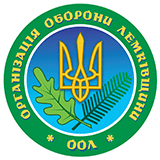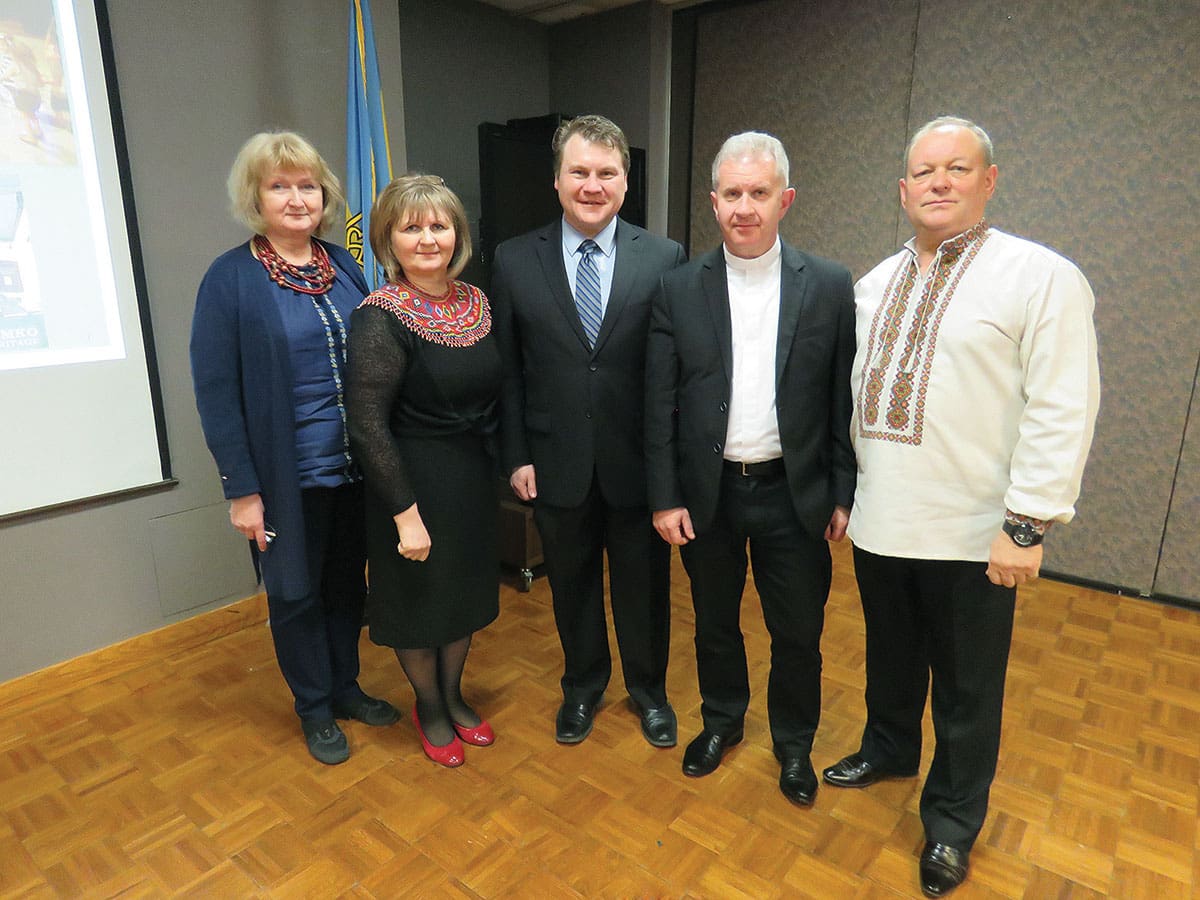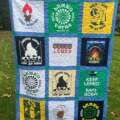PHILADELPHIA – It was back on September 9, 1933, that a small group of immigrants gathered on 13th Street in New York City with the goal of providing material and moral support to their homeland: Lemkivshchyna, or the Lemko region, a Ukrainian ethnographic area in southeastern Poland. They elected a committee, began activities such as creating traveling libraries in the Lemko region to promote education and, three years later, held their first national congress in Philadelphia, officially forming the Organization for the Defense of Lemkivshchyna in America (Orhanizatsiya Oborony Lemkivshchyny, or OOL).
This past April 22, OOL reinvigorated its Philadelphia branch with new membership, as it held an information session to promote OOL’s mission of organizing Lemkos in their communities and conducting educational, cultural and humanitarian work among them. More than a dozen membership applications were submitted in one day, and individuals are still welcome to join online or in person.
The event, which took place at the Ukrainian Educational and Cultural Center in Jenkintown, Pa., was a continuation of OOL’s information and membership campaign that kicked off last year in Pittsburgh in order to re-introduce and expand the work of the organization.
“You might ask, ‘Why should I sign up to the organization? I am already active in church, in SUM [Ukrainian American Youth Association], in the credit union, I do a lot for Ukraine, I send money to Ukraine… OK, you have a point, but I will tell you that our focus is unique,” said the president of OOL, Mark Howansky. “If you have a special place in your heart for or care about Lemkos, the best way to focus on this is through us.”
Mr. Howansky explained how OOL is evolving, including using new technology and social media to communicate more effectively with members and other Lemkos around the world, as well as giving additional attention to younger generations of Lemko Americans who communicate primarily in English.
He outlined OOL’s many activities, including the Lemko Vatra summer festivals, workshops on the Lemko Easter egg drop-pull technique, exhibitions of Lemko artists like Mykola Bervinchak, preservation of cemeteries and churches in the Lemko region, assistance with genealogical research for those who want to know more about their Lemko roots, lectures and book publications by Lemko academics or on Lemko topics, and humanitarian assistance to Lemkos, such as those living in the war-torn areas of eastern Ukraine.
“We help Ukrainians in general, but always have one eye on helping our Lemkos,” Mr. Howansky said.
The April 22 information session was preceded by a presentation by the Rev. Bohdan Prach, Ph.D., of his book “The Clergy of the Peremyshl Eparchy and the Apostolic Administration of Lemkivshchyna.” The book explores the period of 1939-1989, when the Church experienced the extreme hardships of World War II, Soviet/German/Polish repressions, the forced liquidation of its ecclesial structures, and the imprisonment and exile of both the clergy and the faithful. OOL has a long history of cooperation with Father Prach and provided financial support for his research of the book.
“The idea to create such a meeting was born when we found out about the presentation of our honored guest, Father Bohdan Prach. No one spoke during Soviet times about the real history, culture and traditions of the persecuted Lemkos,” said the head of OOL’s Philadelphia branch, Anna Yaworsky.
Father Prach, who is rector of the Ukrainian Catholic University in Lviv, was born in Poland and wrote his dissertation about Lemkivshchyna. “I made great use of the achievements and work of the Organization for the Defense of Lemkivshchyna,” he said, discussing his academic life during the repressive communist period of the 1970s and 1980s. “And, without your financing and publishing in America and other countries, that literature would not have been available to us in Poland. This was the foundation, particularly your Lemkivshchyna magazine. I have all the editions of Lemkivshchyna from the first until current day.”
Father Prach explained how many Lemkos who had been deported to Soviet Ukraine in the 1940s feared expressing their unique culture or using the Lemko vernacular, instead of Russian; as a result, the consciousness and culture of Lemkos in Ukraine began to disappear. Now, the Ukrainian Catholic University has established the Center of Research on Ukrainian-Polish-Slovak Borders and cultivated a solid group of young Lemko academics. Father Prach encouraged the members of OOL to continue to cooperate with UCU through educational exchanges, conferences and other types of academic work.
OOL will hold its next community information session in Syracuse, N.Y., on Sunday, July 1, at noon at the Ukrainian National Home, 1317 West Fayette St. The Syracuse meeting will feature remarks by the president of the worldwide Ukrainian Federation of Lemko Unions (known by its Ukrainian-based acronym as SFULO), Yaroslava Halyk, and a short performance of Lemko folk songs by singer Julia Doszna. (Ms. Doszna will also headline OOL’s upcoming Lemko Vatra festival in Ellenville, N.Y., on July 7-8.)
For more information about OOL events, to sign up for OOL membership or for a Lemkivshchyna magazine subscription online, readers are directed to the organization’s website at www.lemko-ool.com.




